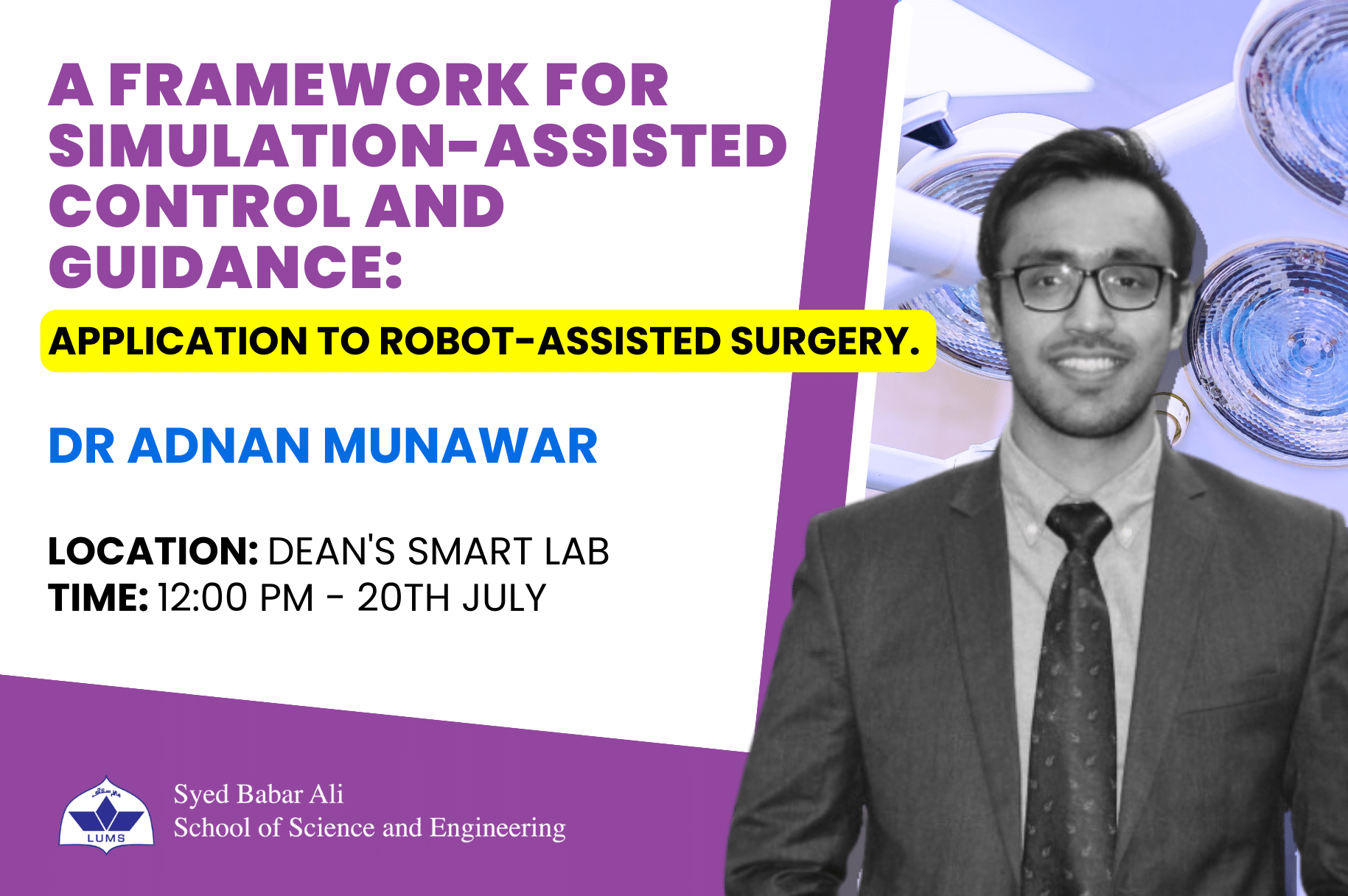
Event date:
Jul
20
2023
12:00 pm
A Framework for Simulation-Assisted Control and Guidance: Application to Robot-Assisted Surgery
Speaker(s)
Dr. Adnan Munawar
Venue
Dean's Smart Lab
Abstract
A digital twin refers to a computer/simulation model of a physical environment that can update identically (or nearly identically) to the physical environment. Digital twins can provide an extra layer of safety and precision for high-risk applications, surgery being one of them. Simulation platforms that are already used for accelerating the research and development of robotic applications can serve as a steppingstone for creating digital twins. While many versatile open-source simulators allow the simulation of common industrial and humanoid robots, they lack the capability for real-time control interfaces, haptic feedback, and the simulation of surgical robots, which are essential for a digital twin framework. Most surgical robots include a high degree of kinematic redundancy in their mechanical design which is required for precision, safety, and constrained manoeuvrability. I developed the Asynchronous Multi-Body Framework (AMBF) during my Ph.D. and continue to upgrade it. AMBF is the first-of-its-kind digital twin framework that allows the robust simulation of complex (surgical and non-surgical) robots and environments. It is designed based on an asynchronous architecture that allows for the simultaneous integration of multiple haptic devices, robot control interfaces, and sensory data. At JHU, AMBF is being applied to various surgical procedures by creating digital twins that can take inputs from the real world (e.g., CT/MRI imaging, robot state and force/torque data, and registration and tracking data), control physical robots using the digital twin computation models and provide novel visual, haptic and auditory feedback to the surgeon. AMBF is also being used internationally by researchers for various surgical and non-surgical applications. This talk will focus on AMBF and its existing applications.
Dr. Munawar is an Assistant Research Scientist at the Lab for Computational Sensing and Robotics (LCSR) at Johns Hopkins University (JHU). He received his Ph.D. and M.S. from Worcester Polytechnic Institute (WPI) while working at the Automation in Interventional Medicine (AIM) Laboratory. He was the recipient of the Fulbright Scholarship during his M.S. program. His research interests broadly include medical robotics, haptics and force control, simulation and animation, and digital twins.

